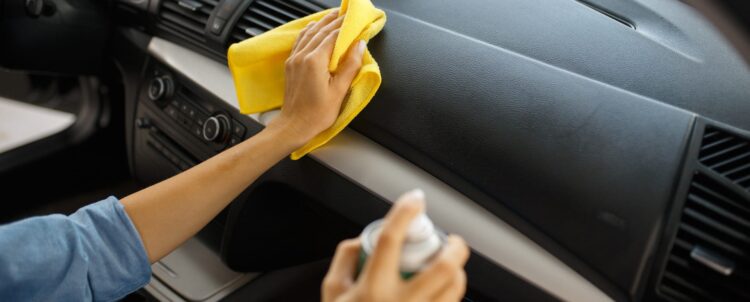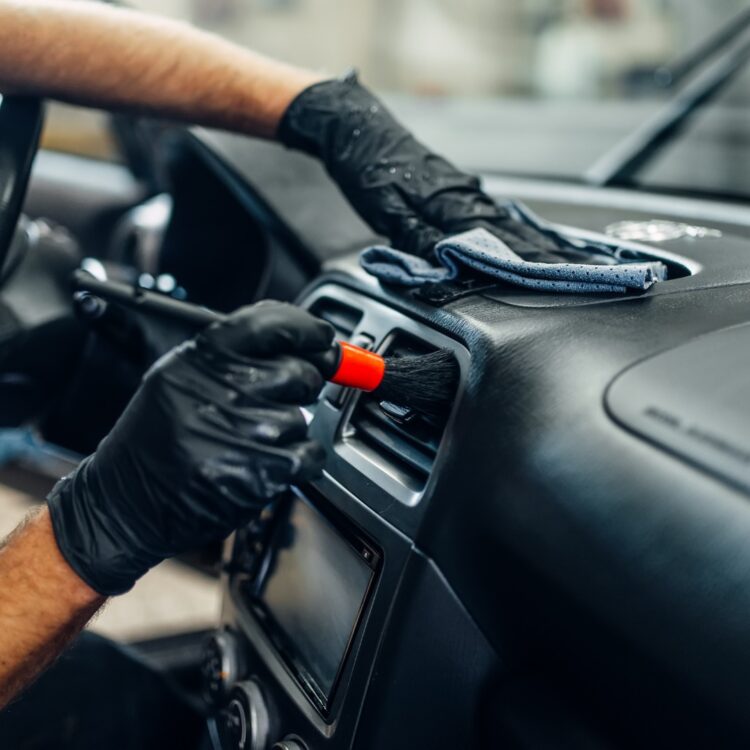There’s nothing like opening your car door on a warm afternoon—only to be hit by a musty, sour, or just plain weird odor. You check the floor. Glove box. Under the seats. Still no obvious culprit. But the smell won’t go away.
This isn’t just an inconvenience. Strange smells inside your car can signal deeper problems, from mold in your vents to fluid leaks you didn’t notice. And if ignored, they’ll get worse—not just the stink, but the issue behind it.
So what’s causing the funk in your vehicle? Let’s break down the common odors and what you can actually do about them.
Page Contents
The Most Common Car Smells and What They Might Mean

Source: urbsgarage.com
Weird smells usually fall into familiar categories. If you can identify the type of scent, you’re halfway to solving the issue.
- Musty or moldy odor:
Often caused by moisture trapped in the HVAC system. If you’ve recently used the AC and notice a damp smell, mold is likely growing in your air vents or cabin filter. Water leaking under floor mats can also cause mold and mildew in the carpets. - Sweet smell (like syrup):
That’s likely coolant (antifreeze). It could mean there’s a leak in your heater core, radiator, or a hose. This isn’t something you want to ignore—coolant is toxic and a vital part of engine regulation. - Rotten egg or sulfur smell:
Usually linked to a malfunctioning catalytic converter, bad fuel, or a fuel system issue. If you smell sulfur and your car is running poorly, get it checked—soon. - Burning rubber or plastic:
Could be a slipping drive belt, burnt-out electrical wiring, or even debris caught on a hot engine part. All of these are safety hazards. - Gasoline smell:
A gas leak, either from a fuel injector or line, is the likely source. This needs immediate attention. It’s a fire risk. - Cigarette smoke:
Tough to get rid of. Smoke particles embed in upholstery and air filters. Even if no one’s smoked inside the car for years, the smell lingers if it hasn’t been deep-cleaned. - Old food or gym bag funk:
If you’ve checked all the mechanical causes, it might just be human error—a forgotten banana under the seat or a sweaty sock in the trunk.
When to Call in the Experts
If you’ve vacuumed, wiped, aired out, and still can’t beat the smell, it’s probably time for professional help.
Odors that persist after your own cleaning attempts usually mean the source is buried—like mold inside the air vents or liquids absorbed deep in the carpet padding.
Even the exterior of your car can trap grime that causes unpleasant smells. Buildup of road tar, bug residue, or even decaying organic material in wheel wells or undercarriage panels can all create lingering odors, especially in warm weather. That’s where a professional car detailing service becomes valuable.
A thorough exterior detail doesn’t just improve the car’s appearance—it removes hidden gunk from areas like the trunk seals, door jambs, wheels, and even the underbody, all of which can harbor bacteria or organic matter that contribute to odd smells.
How to Eliminate Bad Car Smells Yourself (If You Catch It Early)

Source: evanshalshaw.com
You don’t always need to spend hundreds on cleaning if the issue is mild or recent. Try these steps first:
- Remove the obvious culprits.
Check under seats, in seat pockets, and the trunk. Remove old food wrappers, wet clothes, or any forgotten items. - Vacuum every surface.
Especially the floor mats, under the seats, and the creases in your upholstery. Dirt and food crumbs attract bacteria that cause odor. - Shampoo the fabric.
Use a fabric-safe cleaner or upholstery shampoo on seats and carpets. Even better if you have access to a portable carpet cleaner. - Clean the air vents.
Use a small brush or compressed air to dislodge dust and dirt. Follow up with an AC vent disinfectant spray or a deodorizer designed for cars. - Replace the cabin air filter.
A clogged filter can hold onto musty smells and reduce airflow. Replacing it is cheap and makes a big difference. - Use baking soda or activated charcoal.
Both absorb odors effectively. Leave a dish overnight or tuck a bag under the seat for a few days. - Leave windows cracked open (weather permitting).
Allowing airflow speeds up odor removal and prevents moisture build-up.
When Odors Won’t Go Away: Next Steps

Source: bayareaautodetailing.com
Tried everything and your car still smells weird? That’s when you know it’s time for a deeper approach. Depending on the smell and the suspected source, you might consider:
- A mechanical inspection (especially for coolant, gas, or burning smells)
- Full cabin detailing from a pro with steam cleaning and odor neutralizing equipment
- Mold remediation if the HVAC system has built-up moisture or spores
In older cars, it’s not uncommon for years of moisture, cigarette smoke, and dirt to build up and settle into every surface. Don’t expect a spray or air freshener to cut it—this needs a proper, layered clean.
Conclusion
A weird car smell isn’t just about comfort—it’s about health, safety, and the condition of your vehicle. The moment you notice something’s off, trust your nose and act.
Whether it’s a food spill you missed, mildew hiding in your vents, or a mechanical problem brewing under the hood, solving it early saves you time, money, and stress. DIY cleaning can help, but when in doubt, trust the pros.
Your car should be a place of comfort—not a daily guessing game of “what died in here?”




